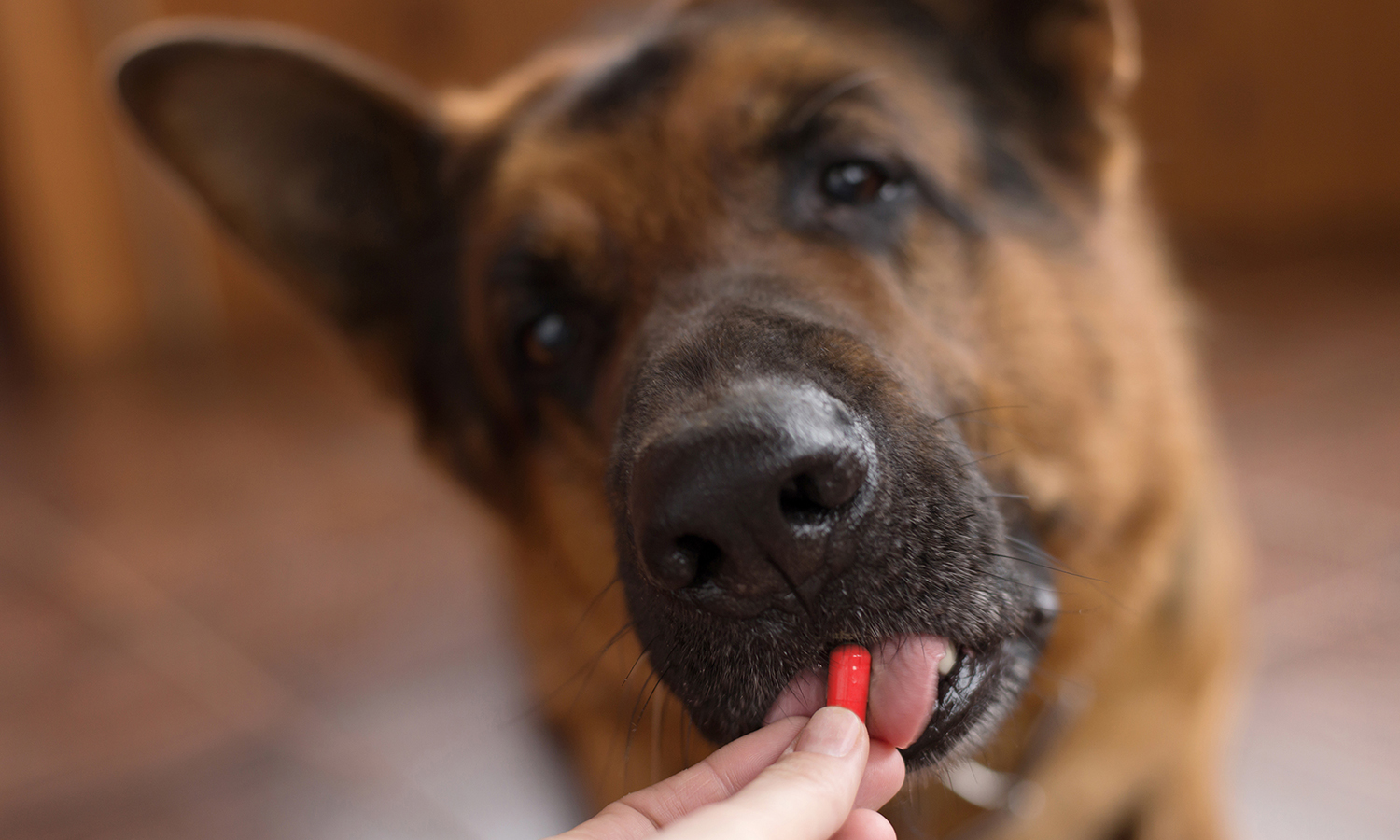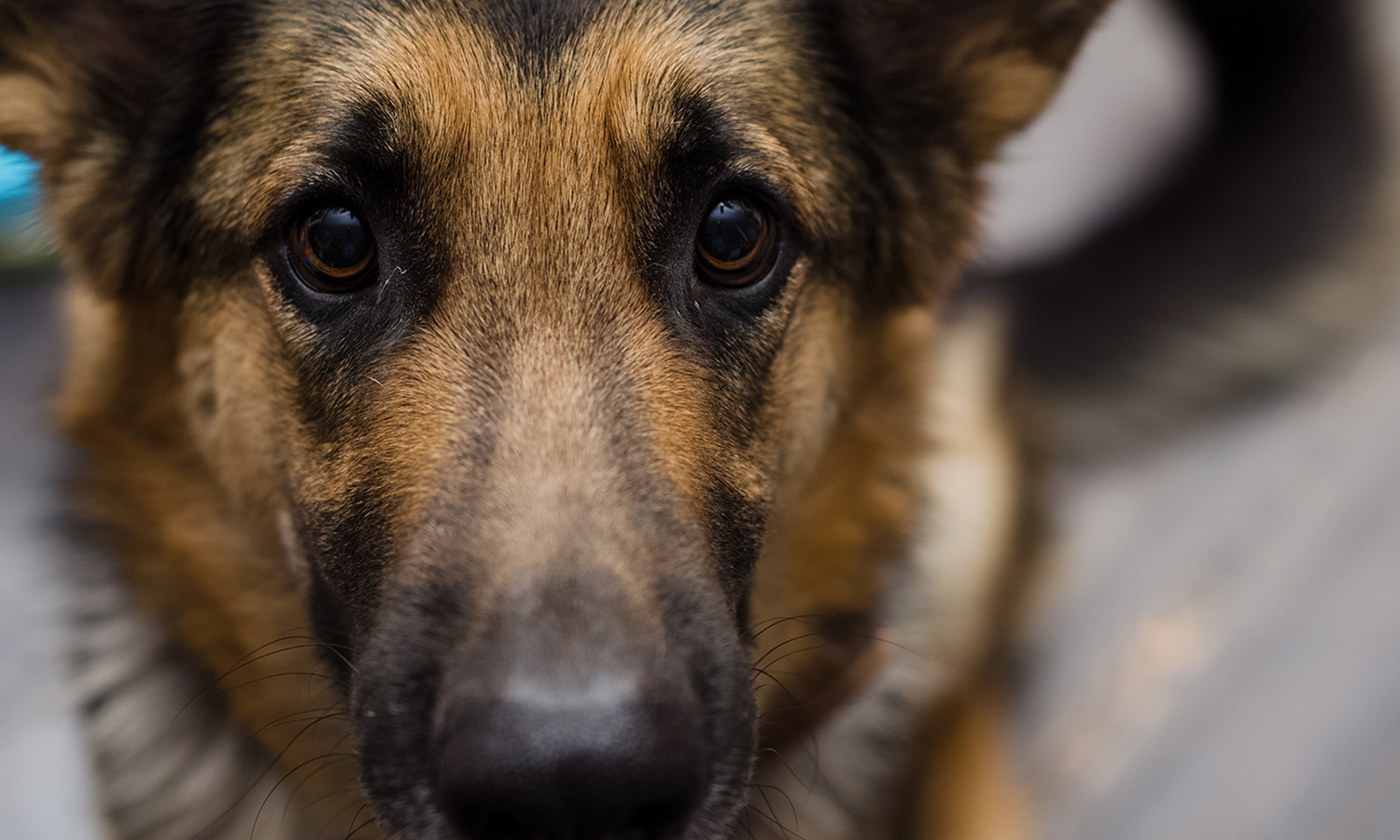
After carefully reviewing the pros and cons to owning a German Shepherd and perfectly matching your personality and lifestyle to these amazing dogs—STOP!
Before it is too late, there are other things you need to know about this perfect breed. It is the side that is not talked about in the full-color, glossy ads seen in fancy dog magazines and in your breeder’s puppy packet. Every breeder has what they think are wonderful dogs. But what is wonderful to them, might not be so wonderful to you. Before it is too late, read this and understand this:
Don’t buy a German Shepherd if you are not going to train and socialize it.
Your cute, bouncing German Shepherd puppy will grow into a powerful, 60-100 pound adult. An 80 pound German Shepherd can easily knock a 200 pound man off his feet with the single tug of its leash. House manners and basic obedience are the bare minimum this breed requires. Basic obedience includes a SOLID sit, down and recall. House manners include not only potty training, but also rules regarding furniture, forbidden areas, counter surfing, respect for your other pets and respect for your guests. WARNING: Do not skimp on early training. Visit your local pet stores and parks for socializing, but also research and invest in quality training at a training facility or canine organization in your area.
Don’t buy a German Shepherd if you cannot afford to take care of it.
Dogs eat—big dogs eat a lot! If you feed your German Shepherd cheap food you will be cleaning up huge, messy piles of undigested food in your yard—not to mention increasing the likelihood of your dog developing allergies and other nutrition-related deficiencies. German Shepherds need high-quality foods and preventive medical care. They also need treatment for diseases and accidents. Like other deep-chested, large-breed dogs, German Shepherds are predisposed to genetic disorders such as hip dysplasia and digestive issues. Anesthesia, boarding, grooming, heart worm medications and sterilization all cost more for big dogs. Call your veterinarian and prepare a budget. Factor in extra for accidents or illnesses that fall outside preventive care and neutering. A figure of $150 per month is not unreasonable. If this expense is going to strain your budget, now is not the time to add a big dog in your life. Being realistic about this can be very difficult—but being unable to care for a dog you love is worse. German Shepherds live, on average, 9-11 years.
Don’t buy a German Shepherd because you think they look cool.
The ‘look’ that attracted you to German Shepherds in the first place is a result of decades of genetic engineering, breeding and socialization. However, socialization does not stop when the puppy leaves the breeder. The ‘look’ will quickly vanish if your loyal protector is barking its head off while running from a stranger or charging your neighbor’s children. The ‘look’ will also cause friends and neighbors who are less dog savvy to cross the street rather than pass you on the sidewalk—and in some cases, even prevent your extended family from coming to your home. Always remember that ‘the look’ can also be frightening to some. The true beauty of a German Shepherd shines from inside—but some will always feel uncomfortable in the presence of such a large dog no matter how well trained and gentle it might appear.
Don’t buy a German Shepherd if it cannot live as part of your pack.
German Shepherds are highly social animals—as are most dogs. A German Shepherd that lives in the yard and not the house will require that YOU spend a great deal of time outdoors with it to bond, train, socialize and meet its needs. Yes, you could get another and have 2 dogs living outside, but then you would have a dog pack, not pets. Some German Shepherds can be protective and territorial. If they perceive the yard to be theirs, they might not be open to sharing it with others—human or otherwise. Dogs that live outdoors have unnaturally short lifespans for many reasons—some of which include, but are not limited to, car accidents, heart worm disease, poisonings, etc. And yes, German Shepherds have even been stolen. Dogs that live outdoors often are shy and/or aggressive. They have no frame of reference for appropriate interaction with people. This is particularly unappealing in a jumping, nipping, dirty, 100 pound dog.
Don’t buy a German Shepherd if you are not a leader.
German Shepherds do not view life as a democracy. They need a pack leader, clear rules, hierarchies and consequences. While some German Shepherds are not socially dominant, in the absence of a strong leader, they might assume the role. Establishing and maintaining leadership is a lifetime job for YOU.
Don’t buy a German Shepherd if you are a neat freak.
German Shepherds are strong, athletic dogs. Their big feet WILL bring dirt and mud indoors. Many also enjoy playing with water—even if it is in your kitchen! Both stock coat and long coats shed, and shed a lot. If you don’t own an expensive vacuum cleaner, you will need to purchase one.
Don’t buy a German Shepherd if you expect it to grow into a fierce protection dog.
Most well bred, properly socialized German Shepherds will guard their territory and protect their pack (if they feel they are part of a pack) but not all German Shepherds are born with guardian instincts. Most German Shepherds have medium to medium hard temperaments, but some can be soft and not suited for protection work. If your lifestyle requires a fierce protection dog, seek breeders and trainers that specialize in this area. Breeders can help to identify puppies with protective potential and a good trainer can help you properly and safely refine those abilities. The last thing you want to do is try to teach a shy puppy to be protective—or worse—end up with a hard puppy that you can neither train or control.
Don’t buy a German Shepherd as an investment.
As demonstrated previously, $150 a month (per dog) is not an unrealistic budget figure when talking about raising a German Shepherd. To that figure you must add health testing and certifications, show and advanced training expenses, traveling to events, advertising, club dues and donations. Not to mention the fact that about half of the time, you can expect the German Shepherd you raised for 2 years (at a minimum $150 per month) to fail to make the grade as a quality breeding animal. As a result, you will have a very expensive pet that you either keep or rehome for little or no compensation. But wait, this is just the beginning. The average litter size for German Shepherds is six. Stud services are not free. Neither are vaccinations and wormings for the entire litter. Do you know how much your family vet or specialist charges for a c-section? Do you have experience hand raising orphaned or abandoned pups? Will your employer allow you time off for whelping—or 3 weeks minimum for hand rearing (feeding every 2-3 hours around the clock?) Do you know that established breeders often have several ‘leftover’ pups due to last minute cancellations, wrong sexes or a huge litter? Can you raise and train (as your own) these ‘leftovers’ until good homes are found? (Also apply the $150 per month per dog figure to ‘leftovers’ as they eat and require veterinary care, too.) If your puppies are dumped by their buyers (who probably didn’t read this or believe this) can you retrieve them from rescue organizations or shelters (usually more fees) and continue your responsibility to them? Most breeders’ codes of ethics REQUIRE you to do so.
And finally, don’t buy a German Shepherd…
• As a first dog.
• If you find it hard to make commitments in your life.
• If your job or living conditions are unstable.
• For the kids as a playmate.
• If your children’s activities and demands put the dog’s needs on hold.
• If no one is home 10-14 hrs a day, and your remaining time is overbooked.
• To have a lawn ornament or trophy of success.
If this honest talk about the German Shepherd breed hasn’t discouraged you, you are likely to embark on an incredible, rewarding journey with an amazing dog. The information provided here is the flip side of what it is like living with an intelligent, demanding, enthusiastic, large dog. As you set out to find your perfect German Shepherd, expect to be quizzed by responsible breeders. Likewise, it is your responsibility to quiz breeders. By doing so, you will be better prepared to notice warning flags. If a breeder cannot or will not provide written proof of health screening on their dogs—RUN. Be extremely cautious if considering a ‘bargain’ German Shepherd as we can guarantee it is a bargain for a reason. After reading this, you will be better prepared to represent yourself, your needs and your situation, so your breeder can help you select an appropriate puppy—increasing everyone’s chances for success.




